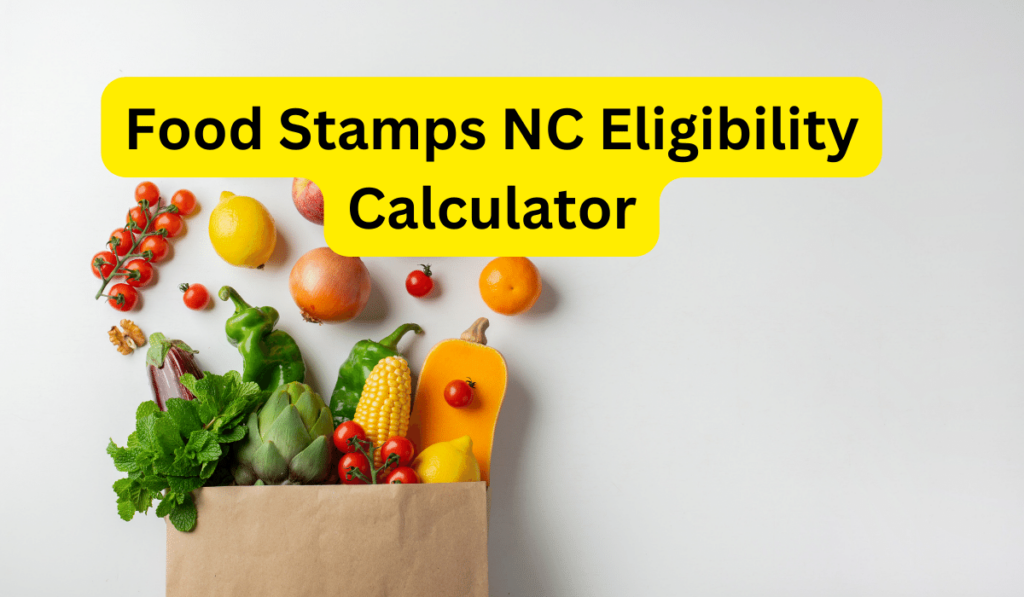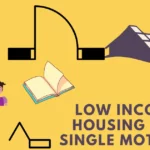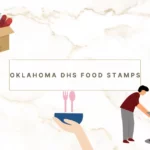Understanding how to get food stamps, also known as SNAP, can be tricky because the rules for who can get them are different in each state. In North Carolina, the eligibility standards have been expanded beyond federal requirements, offering broader access to vital food assistance programs.
Food Stamps NC Eligibility

Here’s a detailed breakdown of SNAP eligibility criteria and how to determine if you qualify:
Gross Income Test
The Gross Income Test assesses your total household income before taxes and deductions. This includes wages, salaries, self-employment earnings, as well as income from sources like social security, disability benefits, child support, worker’s compensation, unemployment benefits, and pensions. In North Carolina, families need to earn less money depending on how many people live in their home to get SNAP benefits. But, if someone in the family is 60 years old or older or has a disability, they might not need to meet these income limits.
Net Income Test
Net income is what you get when you take away certain things you’re allowed to subtract from all the money you make. These things you can subtract include money you have to pay for child support, regular medical expenses if someone in your household is old or disabled, and allowances for utilities. It’s really important to calculate your net income right because it decides if you can get SNAP benefits. In North Carolina, net income limits vary by household size and are capped at 100% of the federal poverty level.
Asset Test
Assets, such as funds in bank accounts, are considered when determining SNAP eligibility. However, North Carolina does not have an asset limit for most households. If you’re 60 or older, or you have a disability, and you didn’t earn a lot of money, there’s a special rule. You can have up to $4250 in assets without affecting your benefits.
Deductions:
Various deductions can be applied to reduce household income when calculating eligibility for SNAP benefits. These deductions include child support payments, standard medical deductions, and utility allowances. Utility allowances vary based on household size and can include heating and cooling costs, basic utility expenses, and phone bills.
Maximum Benefit Amounts:
SNAP benefit amounts are based on a household’s net income. In North Carolina, the maximum benefit amounts vary depending on household size and net income level. The SNAP Eligibility Calculator can provide an estimate of the benefits you may receive based on your household’s financial situation.
Also Read:- NC Food Stamps Income Limit
FAQs
Can I apply for SNAP benefits if I'm employed?
Yes, you can still qualify for SNAP benefits even if you’re employed. Your eligibility is based on your household’s total income and expenses, so having a job doesn’t automatically disqualify you. But we’ll look at how much money you make when we decide if you qualify.
Do I need to be a U.S. citizen to receive SNAP benefits in North Carolina?
To get SNAP benefits, you usually need to be a citizen of the U.S. or have permission to live here legally. However, certain non-citizens, such as lawful permanent residents, refugees, and asylees, may also be eligible. Each situation is looked at separately, so it’s a good idea to ask your local SNAP office about what you need to qualify.
Are there any work requirements to receive SNAP benefits?
Work requirements for SNAP benefits vary by state and are subject to change. In North Carolina, if you’re a healthy adult between 18 and 49 and don’t have anyone depending on you, you might need to meet certain work rules. ABAWDs may be required to work, participate in a work program, or meet certain exemption criteria to receive benefits beyond a certain time limit. Some people might not have to follow the rule if they have a disability or take care of someone else.
Can college students qualify for SNAP benefits?
College students might qualify for SNAP benefits if they meet certain requirements, like working a set number of hours each week, being part of a work-study program, taking care of a child, or meeting certain exemption rules. Additionally, eligibility may depend on factors such as income and household size.
How long does it take to receive SNAP benefits after applying?
After you apply for SNAP benefits in North Carolina, it usually takes about a month for eligible families to get their benefits. However, emergency SNAP benefits may be available for households facing immediate food needs. Make sure you give all the papers and details needed correctly to make the application go faster.
Conclusion
In conclusion, understanding SNAP eligibility criteria is essential for accessing vital food assistance programs in North Carolina. By familiarizing yourself with the eligibility requirements and available resources, you can ensure that you and your household receive the support you need to meet your nutritional needs.
I am the mind behind nammatech.com. I have an experience of more than 8 years in the digital marketing field. The idea behind starting this blog came when one of my friends find it difficult to fill out the application form. So, I came up with an idea to start a blog on this niche.

![Low-Income Housing for Disabled Adults, Seniors Near me [2024] housing for disabled adults](https://nammatech.com/wp-content/uploads/2023/03/Low-income-housing-for-disabled-with-no-waiting-list-near-me-USA1-150x150.webp)
![Low-Income Housing for Seniors near me in USA [2024] Low-income-housing-for-seniors](https://nammatech.com/wp-content/uploads/2023/03/Low-income-housing-for-seniors-150x150.webp)
![Low-income housing with no waiting list near me in [2024] Low-income housing with no waiting list near me](https://nammatech.com/wp-content/uploads/2023/03/Low-income-housing-with-no-waiting-list-near-me-150x150.webp)




